

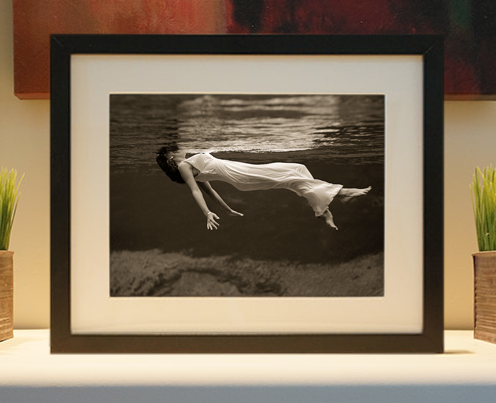
Framed or unframed, desk size to sofa size, printed by us in Arizona and Alabama since 2007. Explore now.
Shorpy is funded by you. Patreon contributors get an ad-free experience.
Learn more.

- Baldwin 62303
- Baldwin VO-1000
- Cold
- No expense spared
- Tough Guys
- Lost in Toyland
- And without gloves
- If I were a blindfolded time traveler
- Smoke Consumer Also Cooks
- Oh that stove!
- Possibly still there?
- What?!?
- $100 Reward
- Freeze Frame
- Texas Flyer wanted
- Just a Year Too Soon
- WWII -- Replacing men with women at the railroad crossing.
- Yes, Icing
- You kids drive me nuts!
- NOT An Easy Job
- I wonder
- Just add window boxes
- Icing Platform?
- Indiana Harbor Belt abides
- Freezing haze
- Corrections (for those who care)
- C&NW at Nelson
- Fallen Flags
- A dangerous job made worse
- Water Stop
Print Emporium
TWA Coffee Shop: 1962
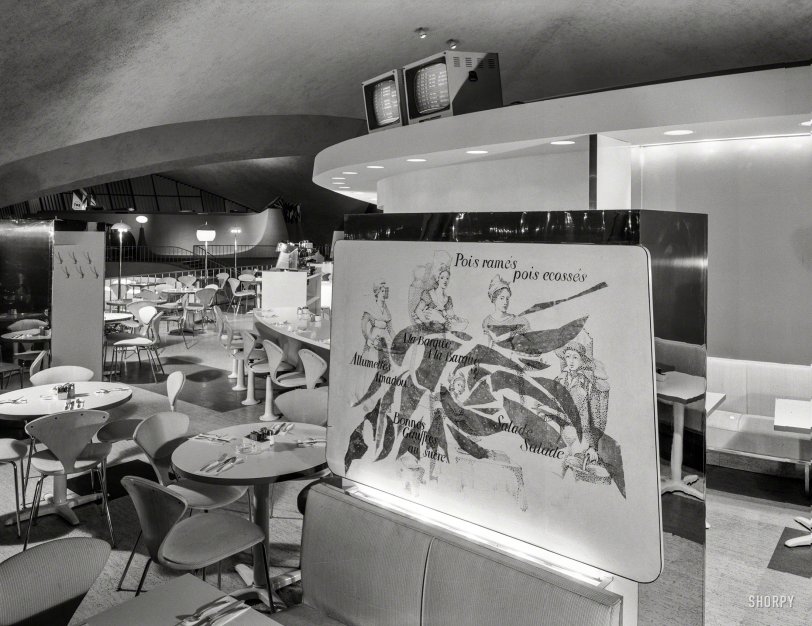
August 29, 1962. "Union News restaurants, Idlewild Airport. TWA coffee shop. Raymond Loewy Associates." Gottscho-Schleisner photo. View full size.
Lauding Tobacconist
I'd like to nominate Tobacconist's comment as the best I've seen for a "Shorpy" post. Thanks for the information.
Needs a bit of polish
Things have sure changed. This view was shot last year.
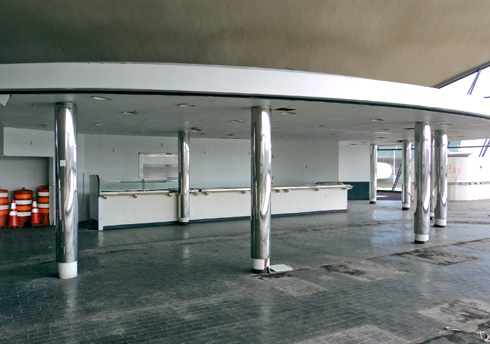
Futuristic coffee machine for a futuristic coffee shop
The coffee machine is a Cimbali Granluce
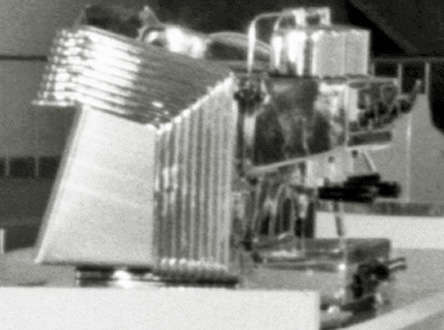
The machine was introduced in the late 1950s and was the first coffee machine to use a hydraulic pressure system to extract the espresso (the hydraulic chambers can be seen at the top of the machine). This system is the basis of every modern commercial espresso machine.
Previous machines relied on the operator pulling on a lever to control a piston that pressurised the water going through the coffee. These lever-piston machines are not used much any more, but the language has lived on - baristas still 'pull' a shot of coffee.
Great education
Posts like Tobacconist's are just one of the reasons Shorpy tops my list of favorite bookmarks. What a fascinating piece of history! Much appreciated.
It may be a sidebar to the overall context of the photograph but it is tangents like that which make Shorpy so engaging. You never know where things may lead.
Thanks for that delightfully informative post, Monsieur!
Tongue twisters in Gay Paree
Those French phrases were well known melodic calls that street criers (vendors, hawkers, etc.) sang in old Paris. In their heyday—the decades well before and after the turn of the last century—there were an estimated 6,000 of them working year-round—at one point in time said to be all women. These vendors had to be authorized by the police and wore a badge conspicuously attached to their waist-belts. Draconian regulations did not allow them to stop—even when making a sale—they had to keep moving no matter the weather or traffic conditions.
Some specialized in seasonal produce, concentrating on one item at-a-time as it was harvested, thus moving from selling only early tomatoes, to grapes, to asparagus in May, closely followed by peas, etc. Others dealt only in fruit, and still more sold everything else imaginable. Whether or not they could carry a tune, they all sang the item they were selling, and some were also identified with different sorts of noisemakers. The cries of some of these vendors are represented on the sign by "pois rames" (snap peas) and "salade" (lettuce)—each sung as two repeated notes in crescendo, and "pois ecosses" (shelled peas) and "allumettes amadou" (matches)—each begun on a high, shrill note then sharply descending. "Bonnes gauffres au suere" (good sugar waffles)—was sung as a musical phrase. On the main picture above, the waffle vendor is shown at the bottom. Toy vendors sang a unique nursery rhyme and used a clapper to attract attention, while some types of goods were recognized by the bits of opera the vendors sang. The call of the oyster seller (below) was "A la barque! A la barque!" which is let out as a staccato call, translates into colloquial English as something like "fresh off the boat." The refrain itself is taken from a song that was popular in the mid-1800s.
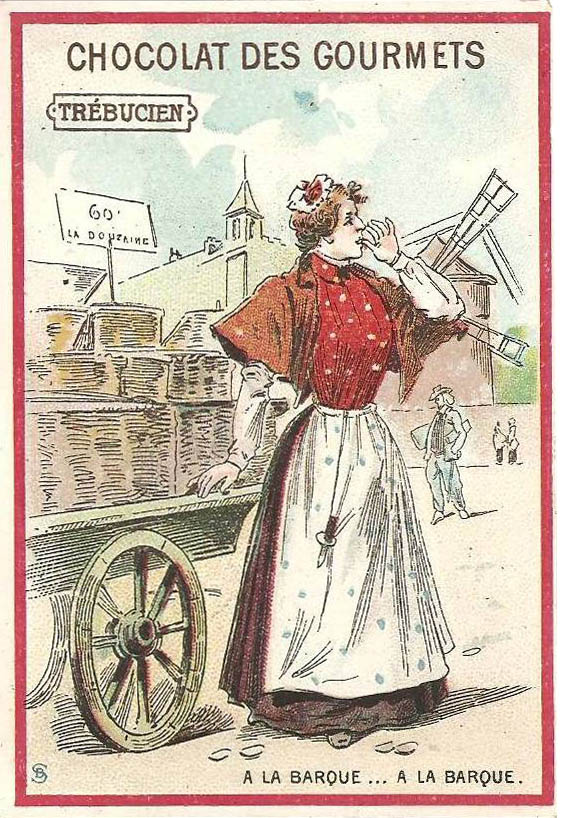
Using modern translators can be a dicey thing. Typing "V'la Plaisir mesdames!!!" from the trading card below into an online translator will probably get you something like "Pleasure ladies here!" (V'la is a contraction for voilà.) Back in the day however, "plaisir" was a light kind of pastry, and the words on the card below were the vendors' call (they also used a type of tambourine) which can be translated as "Pastries here, ladies," much like the ubiquitous cry of "Peanuts here!" at ballparks today.
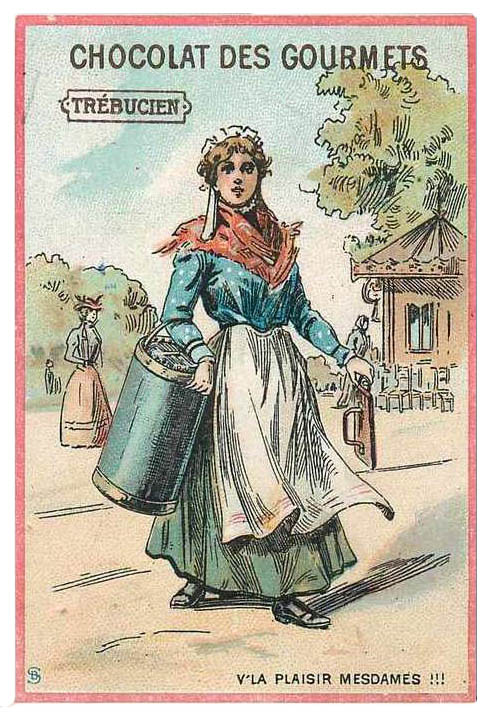
In 1857 the composer J. G. Kastner completed his Grande Symphonie Humoristique Vocale et Instrumentale Les Cris de Paris, which incorporated a number of the vendor calls. It was not preformed until 2009, but excerpts can be found here. Excellent descriptions of many of the vendors can be found in the 1912 English translation of Octave Uzanne's The Modern Parisienne, and in Karl Baedeker's 1907 Paris and Its Environs.
Video Displays in 1962 !
Video displays in 1962 ! Woo-Hoo ! I'll bet that seemed very modern at that time.
The name "Idlewild Airport" may not be recognized by younger readers; it was renamed to "JFK International Airport".
Amazing Airport Terminal
How civilized for a US airport, even if the French is mysterious. I flew out of this terminal in the early 70's as a college kid from the Midwest on his first trip to Europe. I thought it was incredible, and so was the 747 we boarded.
Odd French
The phrases on the foreground sign are a little peculiar -- some are food-related of course, but a couple seem slightly surreal; they translate roughly as "to the small boat" and "tinder matches". (According to my intermediate-level Canadian French, that is.)





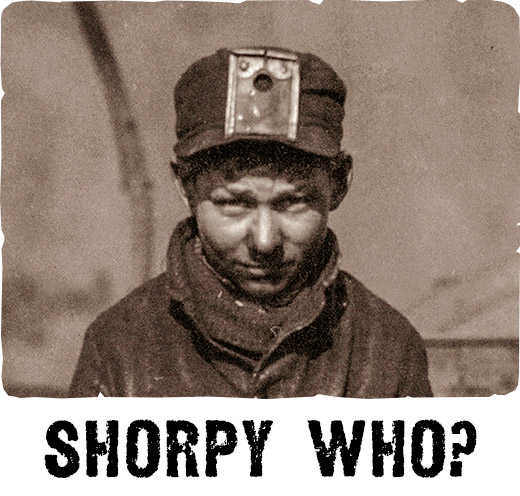
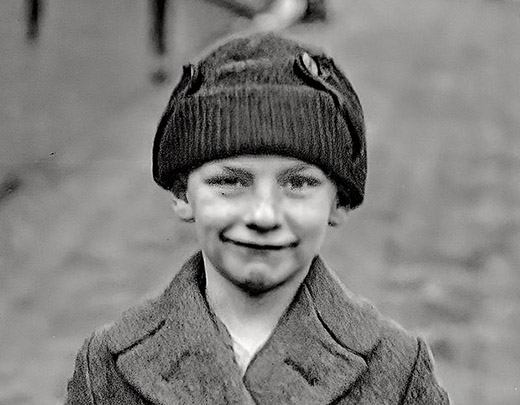
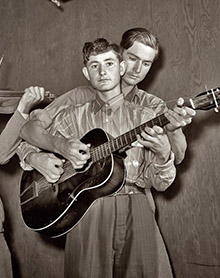
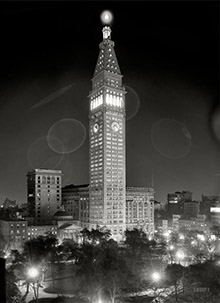
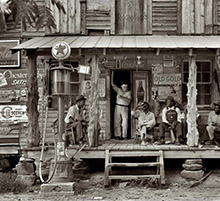
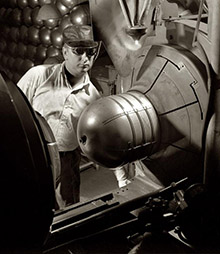
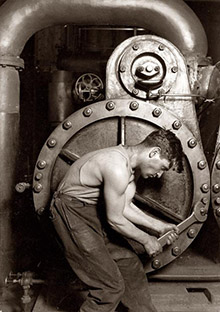
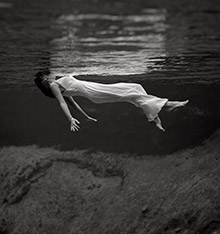
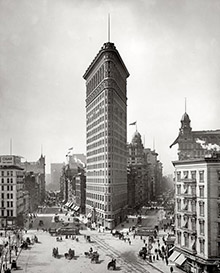



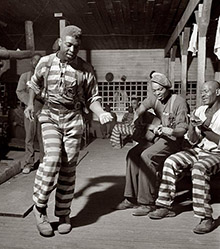
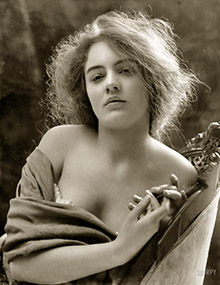
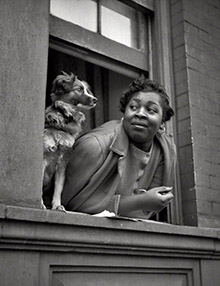

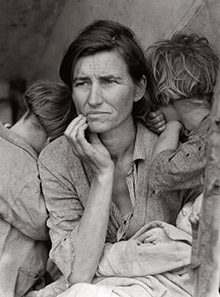

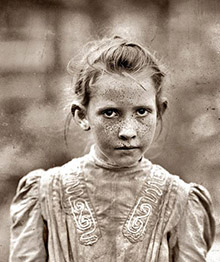
On Shorpy:
Today’s Top 5